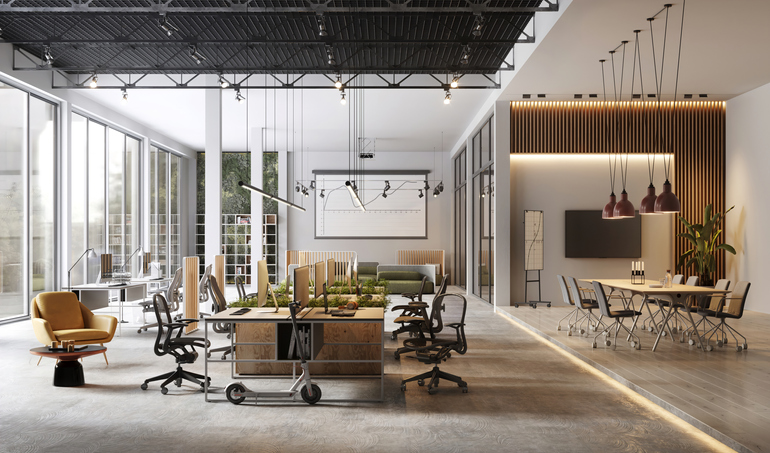Is this the end of the office as we know it?

The UK government is set to launch a campaign to encourage workers back into their offices and places of work amid growing concern that city centre economies could be permanently damaged by the Covid-19 pandemic.
The initiative will aim to reassure people that it is safe to return to normal working life and encourage employers to recommend that their staff do so, with extra support being provided on how to implement new safety measures. However, many employers still feel reluctant to do this.
A study by the Financial Times has found that many employers plan on keeping the majority of their staff working remotely until early next year and a separate survey by the BBC found that 50 major UK employers have no plans at all to return to the office in the near future.
Full or part-time remote working also seems to be what employees would prefer as a survey by Marie Claire and LinkedIn found that 59% of those asked would like to carry on working from home all or some of the time after restrictions have lifted.
At the same time, businesses that rely on bustling city centres have voiced concern that this will endanger their survival. Sandwich chain Pret-a-Manger has already announced that it will be cutting 2,890 jobs as sales have taken a sharp drop. It is feared that similar businesses may be forced to follow suit, with Carolyn Fairbain of the CBI warning that city centres could become “ghost towns” if workers don’t return soon.
Yet there are some instances where firms are indicating that they will still maintain office space in city centres. Earlier this month, Facebook, who previously announced they would likely move to permanent home working, secured a lease on a huge piece of real estate in midtown Manhattan – perhaps taking advantage of the commercial landlord’s need to fill properties in these chaotic times.
If other businesses follow suit, this could signal a move towards a more blended working culture where the employee ultimately has more choice and flexibility over how and where they work.
Much of office work can be easily done from home but there is still something to be said about meeting face-to-face. Whether this be team meetings for collaboration on projects or meetings with clients, face-to-face still trumps virtual in terms of creativity and letting natural conversation flow.
Going into the office at least a few times a week could also be good for staff morale. A report by the Guardian in early July highlighted that many people have been finding working from home a lonely experience and miss the social aspects of working in an office. This can have an impact on mental health so providing some office space where staff can feel a sense of normality after lockdown could do wonders for those who have struggled with isolation.
Perhaps this isn’t the end of the office altogether just the beginning in a revolution in working culture. It may mean downsizing for businesses with large office space but in the long run, it could produce a more engaged and productive workforce who feel that they have a greater degree of control over their work-life balance.
Posted on September 8, 2020
Topics
Recent
- Questions to Ask at the end of an Interview
- How to write a CV & Cover Letter to stand out!
- How to Write a Resignation Letter
- More questions than answers on the outlook for jobs
- Too much intensity as job satisfaction ‘levels down’
- Time to emasculate male-coded job advertisements
- Employers must stop the rot of the toxic workplace
- Home truths about cutting pay for remote workers
